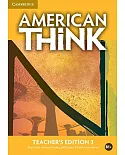Critical analysis of the work of C.S. Lewis is often divided into religious and literary concerns. This book’s goal is to rehabilitate Lewis for feminist scholars of literature as well as
religion by focusing on his ideas in Christian philosophy. The author acknowledges that Lewis’ work relies strongly on gender tropes of femininity: passive, receptive, intuitive, gentle or
weak, and on opposing stereotypes of women as vain, selfish rulers, or humble, self-sacrificing servants. However, she argues that Lewis was not a sexist but a gender radical due to his
fundamental Christian outlook. Lewis’ work can be read through the lens of a Christian witness in which all humans are feminine in relation to a masculine Deity, who provides the only true
rulership, virility, power, and strength. Therefore, the author argues, women are the basic human gender in Lewis’ work; his male heroes triumph by following feminine tropes. According to the
author, Lewis uses these tropes to talk about the failings of human nature, and create a guide to human virtue in which men and women equally should be less like viragos and more like good
women: brides of Christ, submissive to the Lord. Annotation ©2014 Ringgold, Inc., Portland, OR (protoview.com)





















